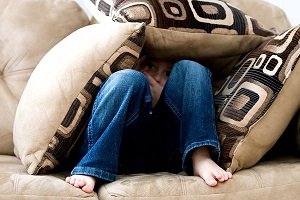Bipolar Disorder and Fact
Tweet- Bipolar disorder affects approximately 2.3 million American adults, or about 1.2 percent of the U.S. population age 18 and older in a given year.
- Men and women are equally likely to develop bipolar disorder.
- Like any serious illness, bipolar disorder also creates problems for spouses, family members, friends, and employers.
- Bipolar disorder tends to run in families, and there is strong evidence that it is inherited. However, despite ongoing research efforts, a specific genetic defect associated with the disease has not yet been identified.
- Bipolar illness has been diagnosed in children under age 12, although it is not common in this age bracket. The symptoms can be confused with attention-deficit/hyperactivity disorder, so careful diagnosis is necessary.
- More than 2 million Americans have manic-depressive illness. It is extremely distressing and disruptive to their lives.
- Family members of people with bipolar disorder often have to cope with serious behavioral problems (such as wild spending sprees) and the lasting consequences of these behaviors.
Bipolar Disorder - Bipolar Disorder is the form of depressive illness in which the sufferer has periods of being on a high, as well as periods of depression.
The less severe form of high in bipolar disorder is hypomania.
Treatment of Bipolar Disorder - Effective treatment is available for bipolar disorder.
What is the cause of Bipolar Disorder? Learn about various causes of bipolar disorder such as family tree, your genes, loss of job, etc.
What are the symptoms of Bipolar Disorder? There are various symptoms of bipolar disorder.
Can Adolescent have bipolar disorder? Bipolar disorder can occur in adolescents and has been investigated by federally funded teams in children as young as age 6.
Can Children Have Bipolar Disorder? Children experience faster mood swings than adults, often cycling many times within a day.
Bipolar disorder - a case study Millions of Americans diagnosed with mental illness lead healthy lives because of information discovered through clinical studies.
History of bipolar disorder - Bipolar disorder has left its mark on history.
Importance of Bipolar disorder diagnosis Diagnosis is important, because it guides treatment decisions.
What is the need of diagnosis in childhood? The importance of proper diagnosis cannot be overstated.
What are the types of bipolar affective disorder? Learn about various types of bipolar disorder.
How can u help ur child and what is the role of parents? Your child can reduce the minor mood swings and stresses that sometimes lead to more severe episodes by adhering to the following tips.


Sometimes crying or laughing
are the only options left,
and laughing feels better right now.

Current Issue
 Self Help Leaflets Take the help of our self help leaflets or booklets. |
 The DG Magazine All about living with depression |


















